To view information on Coronavirus COVID-19 click here.

PCA Families support families joined through permanent care, kinship care and adoption. Our families are diverse but share a common goal. They aim to provide a safe, stable, nurturing and permanent home to the children in their care. They include grandparents, aunts, uncles and older siblings providing kinship care; families who were previously the child’s foster carers; couples who have struggling with fertility and have been through IVF; LGBTQI+ couples; single people; and people with altruistic motivations who provide a permanent home to children.
PCA Families believe strong parents and carers support stronger children and we support our families to achieve this in a range of ways. Access our flyer here to find out about the many ways in which we can support you.
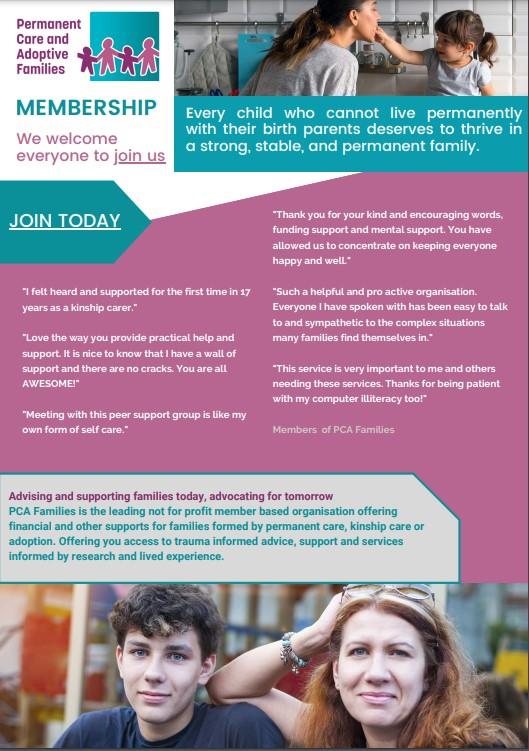
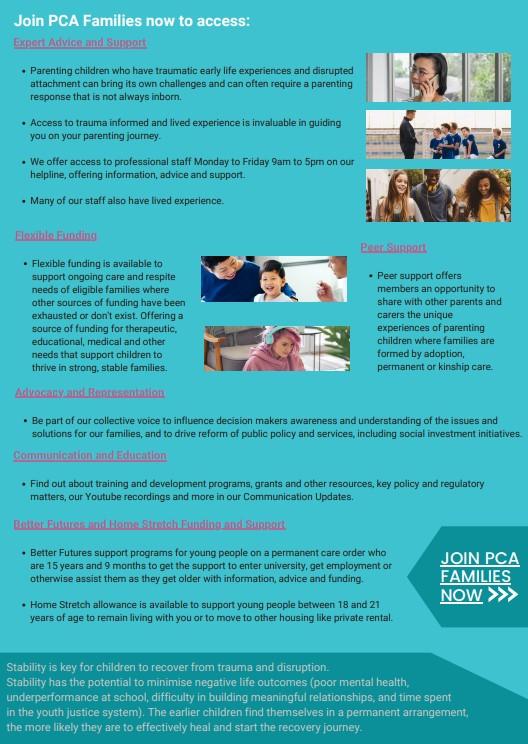
Our Helpline team have considerable experience in the areas of education, grief and bereavement, mental health, family services and child protection.
This expertise enables the Helpline to provide immediate support while also connecting families with appropriate external supports.
Financial help to meet the additional needs of a child in your care. Families with a relevant Victorian order and in receipt of a current DFFH carer allowance can apply.
We understand how important it is for permanent care, including kinship care, and adoptive families to be able to connect with other families to share their experiences.
Find out more or access our Calendar of Events
We have collected articles and links that are relevant to both young people and parents of teens.
PCA Families is committed to the best interests of children. We believe in empowering children and supporting their voices to be heard. In line with our commitment to the rights of children, we also promote and uphold local and international declarations and charters of human rights related to children.
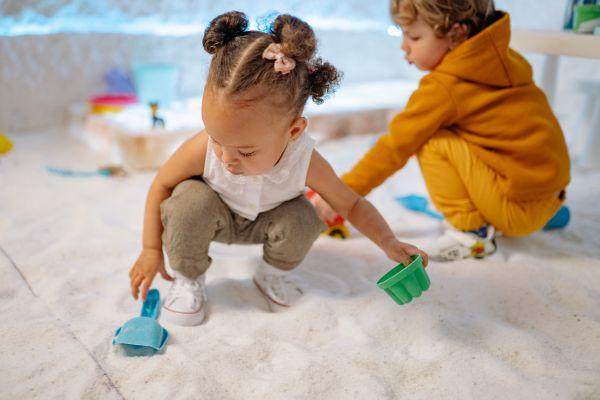 |
Playgroups offer parents and carers an opportunity to come together, share information and develop supportive networks, while the children have fun. Local Councils and Maternal Health are a good place to start to find an appropriate supported playgroup (free). See here. Playgroup Victoria also offer a location based directory of services here. |
All Ways Playgroup also operates in Scoresby (1330 Ferntree Gully Road, Scoresby) the first Thursday of every month (10.00am-12.00pm) for adoptive and permanent care families. Contact Shae at .
1st Thursday of every month, 10am - 12pm
1330 Ferntree gully Road, Scoresby
If you are thinking of setting up a playgroup in your area, PCA Families can support you to do so. See our Fact Sheet here for information.
Early parenting centres (Canterbury, Noble Park and Footscray) are funded to provide additional intensive parenting support to build skills, capacity and confidence of Victorian families in caring for children up to 4 years of age, offering:
More information here.
Minfulness in Motion programs are martial arts based programs for children from 5-14, specifically designed to assist their personal growth. Classes blend skill development, personal observation and experiential learning in an environment that is fun, supportive and engaging. Training will help with mind body connection, improved fitness, a calmer mind, improved confidence and awareness.
There are two programs to choose from:
The Grasshopper program is designed for children aged 5 to 9 and develops skills for life through martial arts. It is taught in a fun and engaging style which is a blend of play based learning, skill acquisition and conversation.
The Mantis program is designed for young people aged 10 to 14 to enhance students' fitness and martial arts skill with the focus on the students' intention. Fun, games and personal growth are the focus of this group while developing a level of martial skill.
Classes are held in Preston More information here.
Other martial arts programs may similarly offer a warm and inviting atmosphere where children can develop incredible life skills like focus, discipline and respect. These programs are also widely associated with improving cognitive function, body strength and flexibility, skills that help with being school ready. Find martial arts programs in your area by searching online.
Using the metaphor of a tree as a framework, these workshops assist children and young people who have experienced adversity and trauma to explore, discuss and narrate the positive and challenging aspects of their lives. children are invited to explore connections with others and gain confidence, self-awareness, trust and a sense of belonging. Find tree of life workshops online at the Dulwich Centre or Relationships Australia.
The Therapeutic Life Story Work model was developed by Richard Rose and is an evidence based narrative model that has excellent outcomes for traumatised children, young people and adults. Find a TLSW practitioner on the international website here or link in with an Australian practitioner here.
Offerig emotionally intelligent evidence based parenting for kids wellbeing with specialised programs for kids, teens and even for Dads as parents too. Find a parenting group or an online group here.
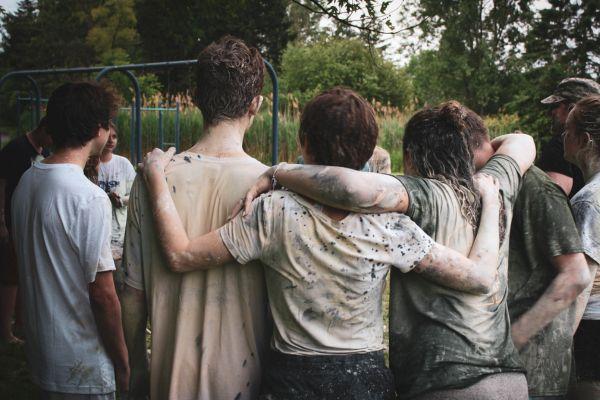 |
In our experience, young people and families often require support as they struggle with life events and transitions during the teenage years. Young people have typically experienced trauma, grief, loss, attachment issues, abuse and/or neglect, which can have life-long effects. |
It can be a challenging period marked by major transitions such as finishing school, starting TAFE or tertiary studies, finding a job and leaving home. So what supports might help teens?
Headspace is a health promotion charity offering a resource for teens where they can get help or advice with mental health, alcohol and otherdrugs, work or study or generally navigating life. Access Headspace here.
Australia wide mental health services contacts for teens here.
Offering a helpline, support centres, forums and online programs like Bite Back (resilience), BRAVE (anxiety) and MoodGym (emotions and coping skills) here.
Free support and connection for people with recurring, persistent or complex mental health issues and trauma, and for their families, friends and communities.
Online, anonymous and confidential and designed exclusively to support young people with their mental health challenges. Peer support one on one or in a moderated community, tips, stories and resources
 |
During this transition young people often rely on their families to provide guidance as well as a financial and emotional safety net. Very few young people are ready for full independence at the age of 18 and in reality, it is much closer to the age of 24 (or older). This is especially true for our families formed through permanent care, kinship care and adoption due to the impact of trauma, grief, loss, attachment issues, abuse and/or neglect. |
This is also a time when the combination of adolescence, identity and family complexities can place added strain on a family. Families may require support to prevent placement breakdown during this time. In the adolescent years many young people grapple with the question ‘who am I?’ and this can be especially challenging for children not living with their birth parents.
The Victorian Government offer advice to young people to assist you when you decide its time to start planning towards moving out from your parents or carers homes.The key to optimal success is preparation: having a planned and supported transition to independent living, involvement in all decision making and a detailed support plan for ongoing support! There are also resources to support you through this process up until the age of 21 and it is critical that you find out what those resources are that may be available to you (whether immediately or in your future).
Find out more about the Victorian Governments leaving care services here.
The Better Futures and Home Stretch programs can help you transition from care to independence. Better Futures provides flexible and tailored support including information, advice and funding. HomeStretch means you can stay with your kinship, foster or permanent carer until you turn 21 years of age if your carer agrees. Your carer can get an allowance to help support you or if you are moving from care to independent living, you can get an allowance to help you with housing costs like rent and bills. Find out more about the Better Futures and Home Stretch programs here.
There are many supports for continuing with education and training, TAFE and university or job and skill programs. Find out more here.
Financial Support for Young Adults Studying or Looking for Work include:
PCA Families can assist young people over 15 years and 9 months with our Better Futures and Homestretch program, offering flexible funding, information, advice, coaching and mentoring for young people on a permanent care order. See here.
In addition to this, there are many services specifically designed for young people, including some for children from a vulnerable background, with appropriate supports built in. They include:
 |
Families may seek parenting assistance around their young persons’ and family’s needs related to, for example:
|
Support provided as early as possible provides a protective measure against future challenges.
Training courses are subject to demand and may include:
Offering a free evidence-based parenting program designed to help you raise your teenager with confidence, reducing the risk of anxiety and depression is the updated Education program, for parents of children who are experiencing school refusal. Find out more here.
Offerig emotionally intelligent evidence based parenting for kids wellbeing with specialised programs for parents of kids, teens and for Dads of teens too. Find a parenting group or an online group here.
Resourceful teenagers have better coping skills. With a focus on positive parenting, behaviour management strategies, teaching new skills and raising confident, capable teens, this research based parenting program is a toolbox of strategies, skills, and knowledge. It can help you create a closer bond with your child as you support their learning, development, life skills and emotional wellbeing.
Find out more here.
The Circle of Security Parenting™ program is based on decades of research about how secure parent-child relationships can be supported and strengthened. The program helps parents to understand childrens emotional worlds and needs, how to manage and develop self esteem and security. Relationships Australia offer a variety of courses regionally here.
Information, parenting education and individual and group based support is commonly available through local councils and services . Find out more about regional services here.
A variety of websites offer online resources to assist with parenting decisions and capability:
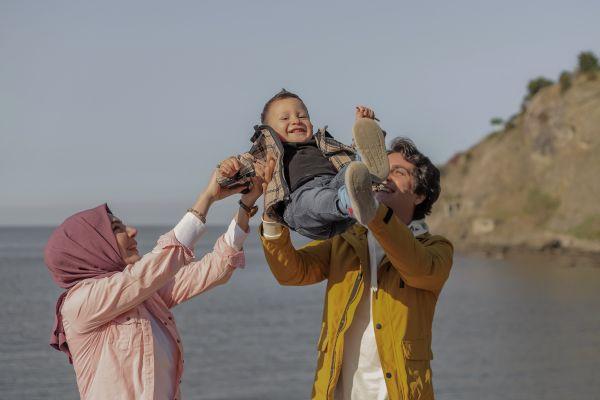 |
Children who have an experience of disrupted attachment, institutionalised care, trauma, neglect or abuse have unique needs which require adapted trauma informed strategies to assist them to learn new ways of behaving and getting their needs met. This applies in the home and at school. |
What works and why?
On their own, children lack the ability to reshape their behaviour; they need assistance to help them regulate their emotions and learn the skills to socialise and get their needs met in healthy ways. Safety and security are foundational issues. Old school methods such as anger, lectures or punishment, bribery, threats, yelling or shaming reinforce negative beliefs and further impact beliefs that adults are untrustworthy and unsafe. These methods can resemble the abusive behaviours or traumatising events in their earlier lives, leading to them reexperiencing the terror, panic, shame or trauma.
Time in not time out
The disciplinary technique of time out does not help with attachment difficulties because of previous negative experiences of separation or disconnection from birth parents. It can create anxiety, abandonment and leave the child escalating with their ability to self regulate diminishing.
Children need to stay close with their parent/carer, to feel safe and supported, to have them regulate their emotions and to offer guidance on how to change unacceptable behaviour.
There are a variety of strategies that you can emply to help your child feel close, safe and supported. See our Time In Fact Sheet for Strategies here.
Safe emotional space
Your child’s lived experiences prior to coming to your family may have been very complex, confusing, traumatic or painful; far beyond what the emotional and cognitive capacity of a child can comprehend or deal with. Your child may have many unanswered questions, memories and emotions and an unconscious need to make sense of their past and their inner life. As your child’s feelings of security and safety grow, they will begin to open up more and ‘test the waters’ to determine if it is okay to discuss some of the burning questions or confusing experiences. This is a positive sign of healing; however it can open up flood gates of emotions such as grief, loss, confusion, shame and rage, which can be very confronting and painful to deal with: for both you and your child!
One of the most loving and supportive things you can do for your child when they have connected with a source of pain and are expressing deep feelings or memories, is to simply ‘hold the space’. This can be described as the ability to remain calm and focused while creating a safe and contained emotional space in which another person can undergo their own process of emotional release or self-inquiry. For you as the parent it means being fully present for your child, letting them know that they are safe and that you can handle their strong emotions; that you will honour what they have to say; that you can be their ‘harbour in the storm’. Remember that they may be touching on memories, feelings, experiences that have previously been too painful or overwhelming to bring out into the open. The challenge for you can be hearing strong emotions such as sadness, anger and grief, and accepting that you do not have to try to ‘fix it’.
There are a variety of strategies that you can employ to help your child feel listened to as you hold the space. See our Creating a Safe Emotional Space for your Child here.
Self regulation
Self-regulation is a child’s ability to manage their behaviour and includes the ability to focus and to control impulses. The capacity to regulate emotional responses is a skill that needs to be learned. It is not present at birth, and occurs as part of the healthy growth and ongoing development in a child. This development is dependent on the formation of secure attachment with a primary caregiver which begins with early parent-infant interactions. When a parent/carer is protective, available, attuned and responsive to the child, secure attachment develops. However, when attachment is disrupted due to abuse, neglect, loss of parent, or other early trauma, it interferes with the child’s emotional, social and brain development, which prevents the child from learning to regulate their emotions. “Emotional dysregulation” is the term referring to emotional responses that are significantly out of control. When this occurs, children’s reactions can take the form of hyperarousal (fight or flight) or hypoarousal (freeze or dissociation). What triggers their dysregulation and the degree of response (from minor to major), is determined, in part, by their past experiences.
Accepting your childs emotional outbursts as a form of communication, providing predictability in routines and rules and modelling self control with your own words and actions will support your child to self-regulate. Find out more about techniques and strategies that you can use here..
Parenting children who have been through pre-placement experiences presents significant challenges, and at times you may find yourself struggling to manage your own emotions and responses to your child’s behaviour. In extreme situations you may even find yourself in a state of intense emotion and impulsive reactions where you just feel ‘stuck’ and have lost all perspective. Understanding yourself, your triggers and applying calming techniques can help you. Find out more about these techniques here.
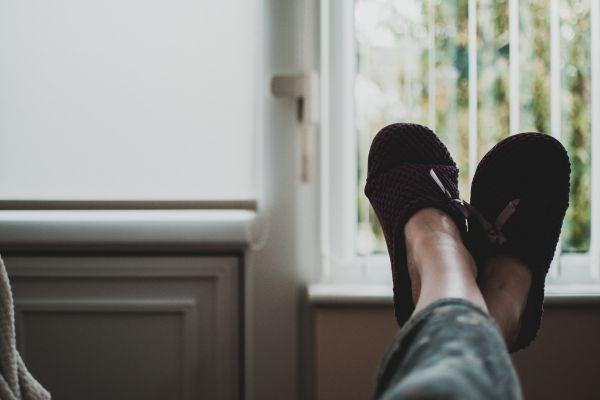 |
Respite offers an opportunity to clear your head, role model taking care of yourself and allows you to avoid overwhelm, sleep deprivation and mental depletion. Respite avoids emotions creeping up on you to a point where they become insurmountable and lead to relationship breakdowns. Whether its choosing one thing a day for yourself, asking for help once a week (laundry, grocery run, childcare) or taking an hour or two for a hobby once or twice a week, respite is important. |
Making a formal arrnagement for respite at least twice a year is preferable to the need for emergency respite care. Offering your child a respectful, supportive relationship with a familiar ongoing person, outside your care, can feel like an extension of family. Respite care can vary based on where you live, the sort of care needed and how urgent the care is. Plan ahead if you are using an agency for respite care as they often have limited carers or book out early.
Respite care can be self funded or funded by the National Disability Insurance Scheme (NDIS) or a Flexi Funding application can be made through PCA Families.
Formal respite options include:
Camps offer an opportunity to develop skills, enjoy fun times and build cultural or other connections.
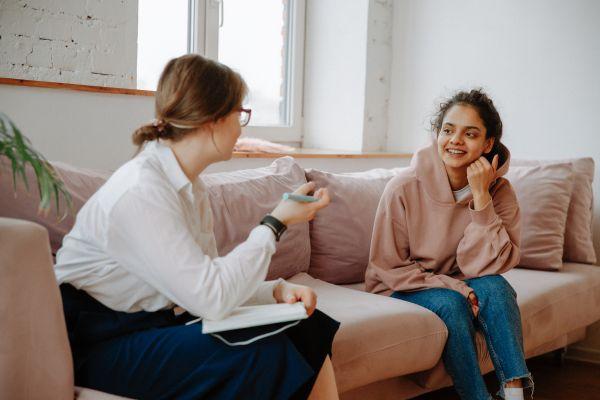 |
There are a variety of resources available to you to help improve your psychological and emotional health and wellbeing. |
The Better Access Initiative offer you access to Medicare rebates for diagnosed disorders so that you might engage mental health professionals. Your doctor/general practitioner (GP) can refer you to an allied mental health practitioner under this initiative.
There are many reasons why you may also wish to seek therapy or counselling with a mental health practitioner. Family life is and can be complex particularly when adoption or permanent and kinship care are part of the mix. Having a therapist support you, your child or your family, can help with exploring new ways of seeing or responding to issues and can help to refocus and strengthen your skill set.
The Australian Government offers Medicare rebates for a range of mental health services delivered to adults and children, including under telehealth in regional areas. The rebate is available to people diagnosed with a mental disorder, such as depression and anxiety, and includes psychiatrists, psychologists, general practitioners and eligible social workers and occupational therapists. Your doctor/general practitioner (GP) can refer you to an allied mental health service under the Better Access (BA) initiative. The BA initiative gives Medicare rebates to help access mental health professionals and care, including in regional areas under telehealth. The rebate is available to people diagnosed with a mental disorder, such as depression and anxiety, and includes psychiatrists, psychologists, general practitioners and eligible social workers and occupational therapists.
Find out more about this initiative in our fact sheet here.
There are many reasons people seek therapy or counselling and there are many questions along the way about therapy's potential value. Family life is and can be complex particularly when adoption or permanent and kinship care are part of the mix. Loss of previous relationships, differing styles of communication, the pre-placement experiences of your child, or cultural difference may disrupt a family’s ability to successfully connect. When this occurs it can be experienced as a loss of enjoyment or disconnection to and with each other. Having a therapist can help with exploring new ways of seeing or responding to issues, help to refocus and help to strengthen your skills set.
It can be hard to figure out who to see to get the help you need for yourself, your child or your family. It is also easy to have thoughts that stop you from engaging a therapist. Thoughts like I will be embarrassed or judged, it will pass, it wont help anyway or I cant afford it.You would not be alone in those thoughts.The starting point is working out what is the most important area to focus on while also taking into account the age and developmental needs of your child. Often we want to fix every problem we see, but that can be overwhelming and also expensive. PCA Families Fact Sheet on Finding and Engaging Therapists may help you navigate those decisions. See our fact sheet here. Our YouTube recording on Finding Therapists might also help. Access our recording here.
There are a variety of State and Federal based services available to Victorian families to support childrens or families health. Some of these include:
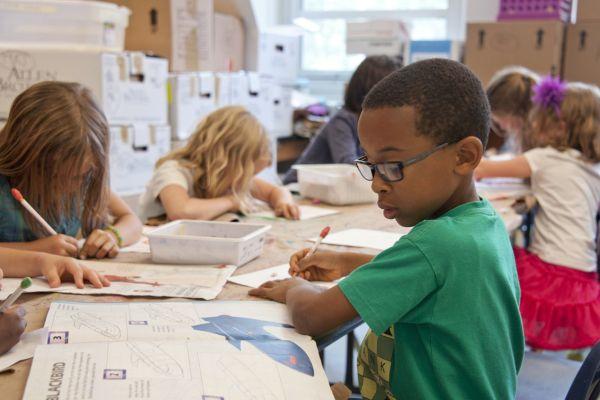 |
A wide variety of resources are available to help teachers provide calmer classrooms and to help parents and carers support children in the education system. Learn more about the educational resources that are available to you. |
The Department of Education and Training offer a variety of programs that assist children in schools with inclusivity, health and wellbeing. See here.
Practical information about the resources that are available to Victorian parents and carers to support your childs learning needs are also available here.
There is a commitment to providing resources specifically for children in out of home care (OOHC), including:
Find out more about these resources here.
Safe spaces like schools can make it hard for children with a trauma experience to adapt. Their brains can be programmed to cope which may mean they beocme hypervigilant to threats rather than receptive to the safe school space. That can mean anxiety, conflict, blaming others, irritability, aggression and withdrawal are likely. They need reassurance that they arent at fault and enocuragement to try again, believing that things can change. They can lack motivation, struggle with concentration, be increasingly tired or present with a low mood. It can also mean transitions and change can overwhelm them. A structured environment with help with planning and support that is offered to help build trust can help. Similarly offering a quite space when they need it is vital. A calm reassuring relationship based approach to encourage social competence and relationships with others can help combat stressors from the past.
There are a variety of resources that are relevant to designated teaching staff to consider, including:
Support for schools and agencies are also available from:
It can be challenging balancing other parents and childrens needs for information while empowering your child to lead how much or little they wish to share. The inevitable questions like "Why dont you look like your Mum?" or :"Why cant you live with your (birth) parents?" By educating other parents and children we can help our child. We can also avoid blame or criticism towards the birth family which can harm our child. These approaches may be useful:
By educating teachers, parents and classmates, they can be more open to supporting you and your child, as they will be informed about trauma behaviour as distinct from "bad" behaviour.

PCA Families acknowledges the First Nations peoples of all Country throughout Australia. We are grateful for continued connections to lands, waters, seas and communities. We pay respect to Elders past and present as we express our intention to move together to a place of justice and partnership. We acknowledge sovereignty has never been ceded and Australia was, and always will be, Aboriginal lands.
PCA Families has a zero tolerance of child abuse and we are committed to establishing and maintaining child safe environments.
